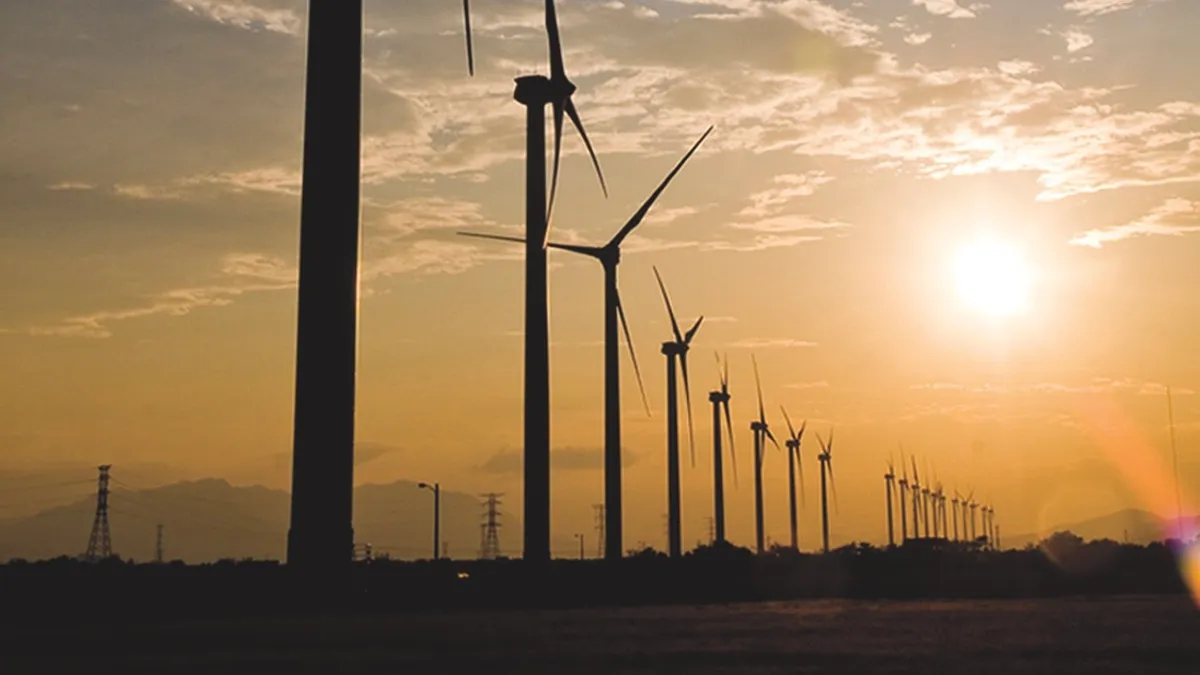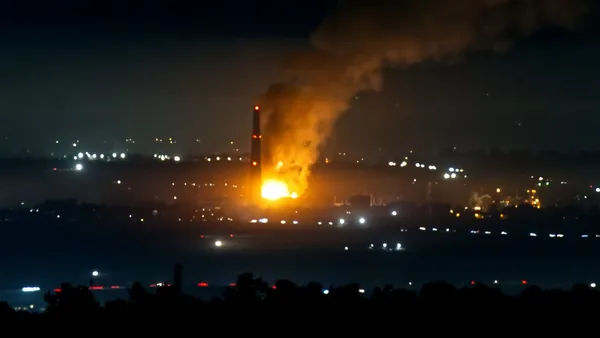Dive Brief:
- In Hamburg, Germany, Siemens says it is developing a low-cost storage technology alongside Technical University Hamburg Harburg and urban utility company Hamburg Energie, that will store excess wind energy in a thermal state, Energy Storage Update reports.
- The full-size FES will be able to store around 36 MWh of energy in a container with around 2,000 cubic meters of rock. Stored heat could then be used to generate up to 1.5 MW for up to 24 hours a day.
- According to Energy Storage Update, large scale developments using this technology could reduce the cost of energy storage below 11 cents/kWh at the levelized cost of energy. The complete testing facility is slated to be finished by 2017.
Dive Insight:
The cost of battery storage is falling, but nothing like the number that a Siemens storage is targeting for a large-scale wind energy storage project that would use geology and thermal energy. Energy Storage Update spoke with Till Barmeier, program manager for the project, who said it was possible to store wind power for just pennies per kWh.
In large-scale developments, Siemens now thinks they can store energy for less than 0.10/KWh in euros. In American dollars, that trades in at about $0.11/KWh. But this technology isn't dependent on lithium ion resources or flow battery technology, but instead uses thermal storage technologies.
"The technology of our FES store deliberately uses mainly tried and trusted technology," Barmeier said in a statement about the project. "Because we are working here with tested thermal components and a series-ready steam turbine, we will be able to offer a practical solution within a few years. Our complete experimental system will be operational in just around 15 months."
Siemens says it is currently operating a test set-up for the storage solution, named Future Energy Solution (FES), at Hamburg-Bergedorf. The company is studying how to make charging and discharging the store efficient; the arrangement of the rock fill and the form of the surrounding insulating container "are crucial," the company said. The storage facility is being tested at temperatures over 600 degrees Celsius.
The current facility is only testing the thermal requirements for the storage process, however; no reverse current is generated.
Correction: A previous version of this article incorrectly compared Siemans' estimated cost per KWh to the investment cost from a report prepared for the Australian Renewable Energy Agency.















